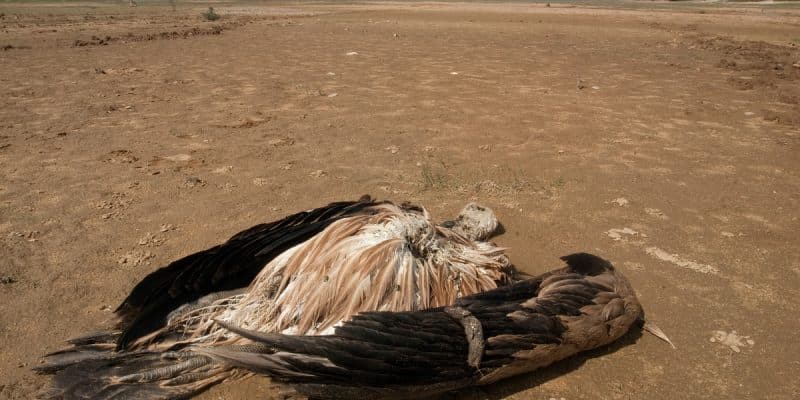More than 150 vultures were recently found dead in Botswana and South Africa. According to nature conservation organisations, the birds had eaten carcasses of animals poisoned by poachers who intended to operate without the protection of rangers. This is the umpteenth mass killing of an animal classified as critically endangered by the International Union for Conservation of Nature (IUCN).
African vultures (Gyps africanus) have been subjected to yet another mass killing in southern Africa. The events took place on 11 and 12 August 2022 in South Africa and Botswana, killing just over 150 white-backed vultures. More than 50 lifeless bodies were found in Chobe National Park in northern Botswana and another 100 in Kruger Park in north-eastern South Africa.
According to Vulpro and SANParks (South African National Parks), the raptors died after eating the carcass of a poisoned buffalo. Vulture poisoning is not uncommon in wildlife-rich southern Africa. By flying in groups over carcasses, they betray the positions of poachers. To keep their illegal activity away from the eyes of the rangers, some poachers choose to kill the birds. They smear the carcasses with highly toxic agricultural pesticides.
African vultures face increased risk of extinction
This latest mass killing of vultures by poisoning comes on the heels of the June 2019 massacre in Botswana. To avoid detection, poachers had poisoned several elephant carcasses, causing the death of about 500 vultures. “Given the critical status of vultures worldwide, poisonings of this magnitude put the species at increasing risk of extinction,” says Yolan Friedmann, director of the Endangered Wildlife Trust, a South African wildlife organisation.
According to Kerri Wolter, founder of Vulpro, a South African vulture conservation organisation, vultures are among the fastest-growing animals in the world to become extinct. “The African vulture, of which there are only a few thousand individuals left in the wild, has seen its population decline by 90% over the last 30 years,” says the expert.
Read also-BOTSWANA: Over 500 vultures found dead after massive poisoning
Classified as critically endangered by the International Union for Conservation of Nature (IUCN), vultures play a very important ecological role in nature. They help stop the spread of disease by cleaning up decaying carcasses.
Boris Ngounou







